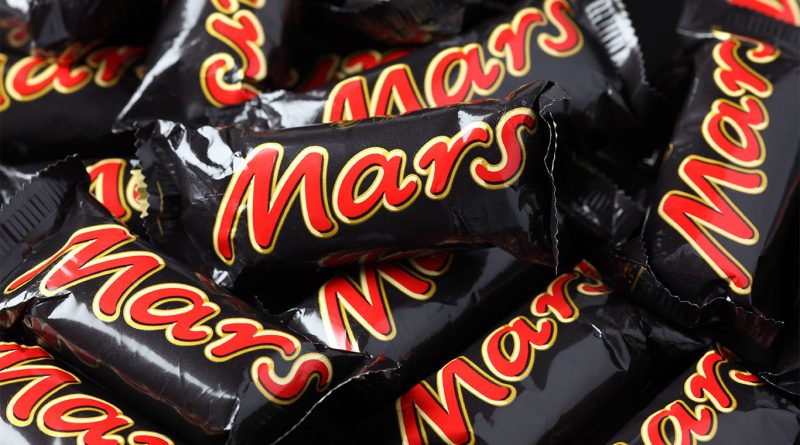Snickers maker Mars to invest $2B in US manufacturing through 2026
Subscribe to our free newsletter today to keep up to date with the latest food industry news.
In an era when many manufacturers are rethinking global supply chains, Mars Wrigley is making a decisive play for home turf. The confectionery and pet care giant will invest $2 billion in U.S. manufacturing through 2026, a move designed to fortify its domestic production base, boost capacity for consumer favorites such as Snickers and Peanut Butter Snickers, and expand its reach in pet food and snack categories.
The commitment builds on more than $6 billion invested over the past five years. Today, 94 percent of the products Mars sells in the United States are made domestically, a share the company aims to increase as demand rises and market conditions shift. The scale of the new investment signals both confidence in the U.S. market and a strategic hedge against global supply chain uncertainty.
Major projects, major jobs
Two projects headline Mars’s latest round of spending. In Salt Lake City, Utah, the company is completing a $240 million Nature’s Bakery facility. Spanning 339,000 square feet, the plant will push the brand’s bar production to nearly one billion units per year and create more than 230 jobs. The move not only boosts capacity but also brings production closer to key distribution hubs, reducing lead times and transportation costs.
In Ohio, Mars has opened its largest Royal Canin dry pet food plant worldwide in Lewisburg. At $450 million, the facility is built to serve both domestic and export markets, with the potential to employ up to 270 people. Together, these projects demonstrate the breadth of Mars’s manufacturing footprint — from human indulgences like Snickers to high-quality pet nutrition products.
The company has also invested in technology upgrades across existing plants, introducing automation, advanced quality control systems, and more sustainable operations. These enhancements are aimed at reducing waste, improving worker safety, and supporting innovation, including new product formulations and packaging formats.
Resilience and market strategy
Mars’s Chief Financial Officer, Claus Aagaard, has framed the investment as part of a strategy to build “a stronger, more resilient business in the U.S.” This involves anticipating shifts in consumer behavior, from rising demand for premium indulgences to growing interest in sustainable sourcing.
By keeping production close to its largest customer base, Mars can respond faster to changing tastes and market conditions. The success of launches like Peanut Butter Snickers underscores the need for flexibility — the ability to scale up production rapidly when a product takes off.
The investment also underscores a broader shift in the company’s portfolio. While chocolate and confections remain core, pet care has become an increasingly important growth driver, with brands like Royal Canin and Pedigree capturing market share in a sector projected to grow steadily over the next decade.
Riding the reshoring wave
Mars’s $2 billion pledge is part of a wider trend in American manufacturing. Supply chain disruptions during the pandemic, combined with geopolitical uncertainty and higher shipping costs, have prompted many multinational food producers to bring more production capacity back to the United States.
Competitors including Hershey and Mondelez have also expanded U.S. operations in recent years, chasing similar benefits: greater control over quality, faster speed to market, and insulation from trade-related volatility. For the confectionery industry in particular, domestic production supports fresher products and enables seasonal, limited-edition releases to hit store shelves on schedule.
Reshoring also plays well with consumers who are increasingly attentive to where and how products are made. A “Made in the USA” label can be a subtle yet powerful selling point, especially in categories with strong emotional connections like candy.
The road ahead
The impact of Mars Wrigley’s investment will ripple beyond its factory floors. Construction and equipment installation will provide near-term economic boosts in local communities, while long-term operations will support thousands of jobs across production, logistics, and supply chains.
For suppliers, the expansion represents an opportunity to deepen partnerships with one of the largest players in the food sector. From packaging producers to raw ingredient suppliers, Mars’s growth will likely stimulate demand across multiple industries.
In the competitive U.S. confectionery and snack landscape, capacity is king. By betting big on domestic production, Mars Wrigley is positioning itself to innovate faster, safeguard supply, and meet demand for both everyday staples and new product hits. With the combination of legacy brands like Snickers and rising stars like Peanut Butter Snickers, plus a fast-growing pet food arm, the company’s $2 billion wager could pay dividends far beyond the next three years.
Sources:
